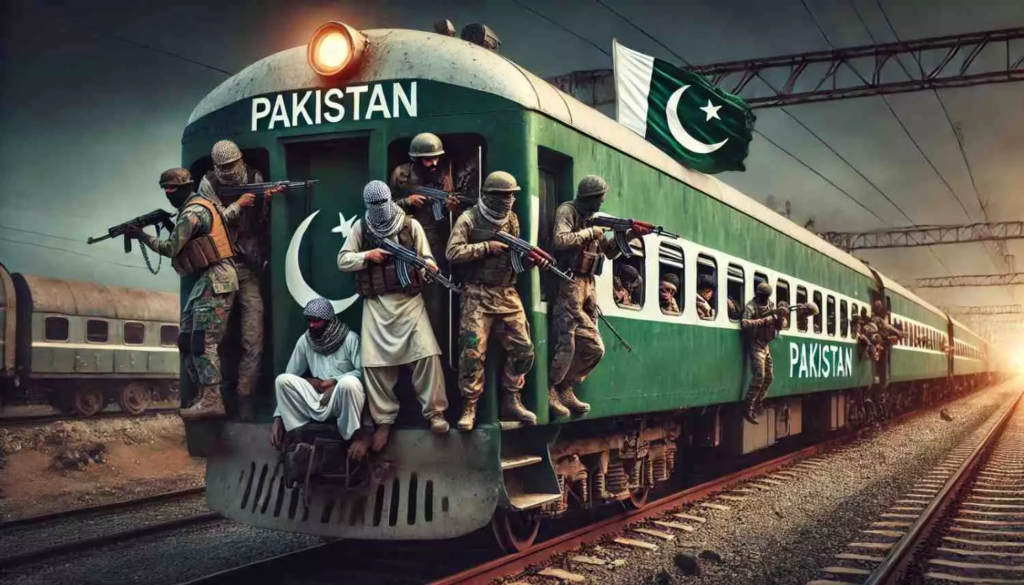In a tension-filled and dramatic rescue mission, Pakistani security forces managed to rescue 155 hostages on a hijacked train in the restive Balochistan province. The operation cost at least 27 BLA militants, a separatist group notorious for insurgency actions against the Pakistani government.
The Hijacking Incident
The Jaffar Express, carrying passengers from Quetta to Peshawar, was ambushed when it was forced to stop in the middle of a tunnel after explosions were set off along the tracks. More than 400 passengers had been on the train when militants from the BLA took the train over and took over 200 people like hostages, comprising women, kids, and several reportedly military members.
Official According to reports that the Terrorists used the tunnel a hiding place. to set up a stronghold, making the first rescue difficult. The hijackers demanded the release of Baloch political prisoners and missing persons and threatened to kill the hostages if their demands were not completed in 48 hours.

The Rescue Operation
Pakistani security personnel conducted a massive operation to free the hostages and counter the militant threat. The rescue operation featured heavy gunfire and an extended firefight with the insurgents. Following hours of intense fighting, the security troops were able to free 155 of the hostages and kill 27 of the rebels.
Although the rescue was a success, dozens of passengers are said to be still in captivity. The women and children are reportedly being used by the militants human shields, and later rescue missions become difficult. Officials have promised to keep operating until all the hostages still in captivity are rescued.
Background of the Baloch Insurgency
Baloch Liberation Army (BLA) is a militant group that has been waging a long-persistent insurgency against the Pakistani government, complaining about the exploitation of In Balochistan, the Extensive Natural resources and denying regional autonomy. BLA has been behind repeated attacks on security personnel, installations, and government infrastructures during time.
Balochistan, the largest province but most sparsely populated in Pakistan, is of key strategic and economic value because it contains Enormous Natural Gas, mineral deposits, and because it sits on important trade routes. Nevertheless, the location remains underdeveloped, sparking resentment and the nurturing of secessionist attitudes.

International and Domestic Reactions
The rescue mission, though risky, has generated widespread interest both In and Outside the country. Pakistani officials have denounced the actions of the BLA and reiterated their determination to end insurgent threats. Both the Prime Minister and military leaders Bravo the valour of security personnel who took part in the mission and vowed to ensure the release of the other hostages.
Human rights groups, though criticizing the hostage-taking, have called for the government to redress Baloch grievances at their source and strive towards ending the conflict through peaceful means.
Ongoing Efforts and Future Implications

As security forces continue to carry out operations, the situation stay precarious. The tactic of using human shields by militants has added complexity to further attempts at rescue. Security measures have been tightened across the province to hinder further attacks and protect public transportation.
The incident highlights the recurring issues Pakistan is confronted with in containing separatist violence while ensuring regional stability. How the management strikes a balance between security operations and addressing political and socio-economic issues in Balochistan will be instrumental in determining the future of the location .
This high-profile hostage crisis is a grim reminder of the instability in Balochistan and the imperative need for all-round measures to tackle both security and the deep-seated grievances of its people.
